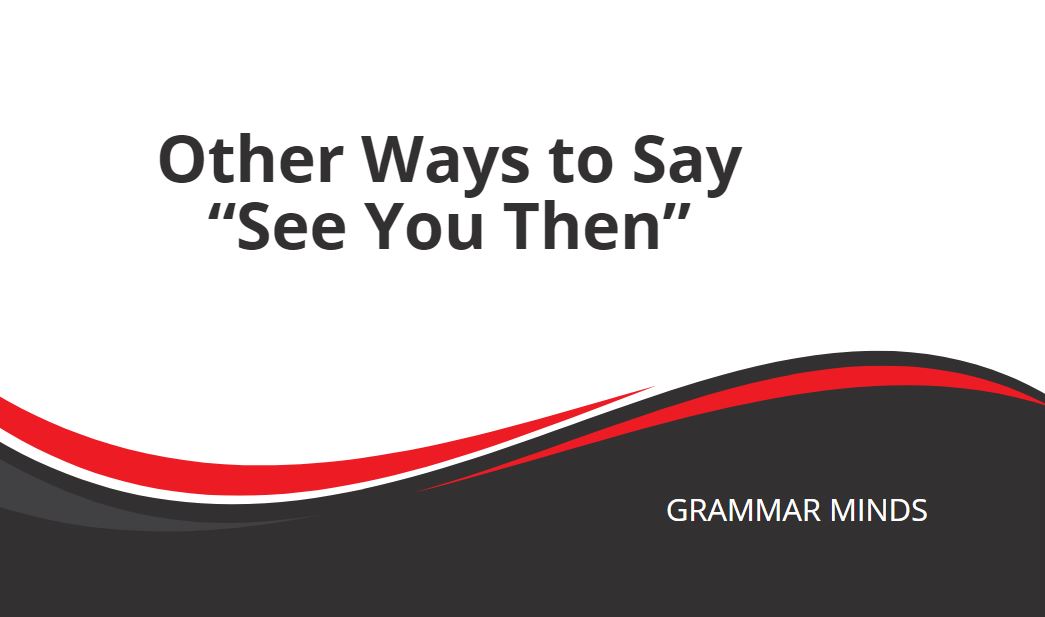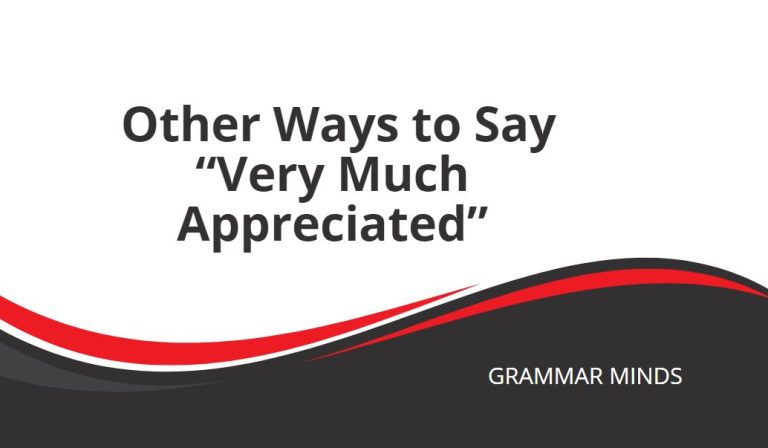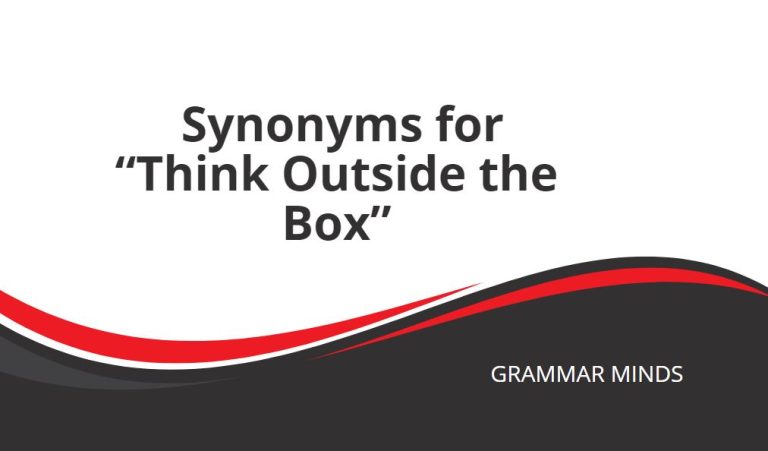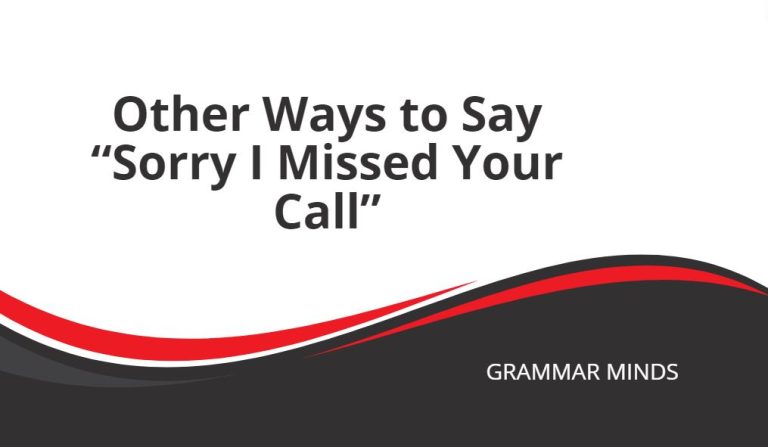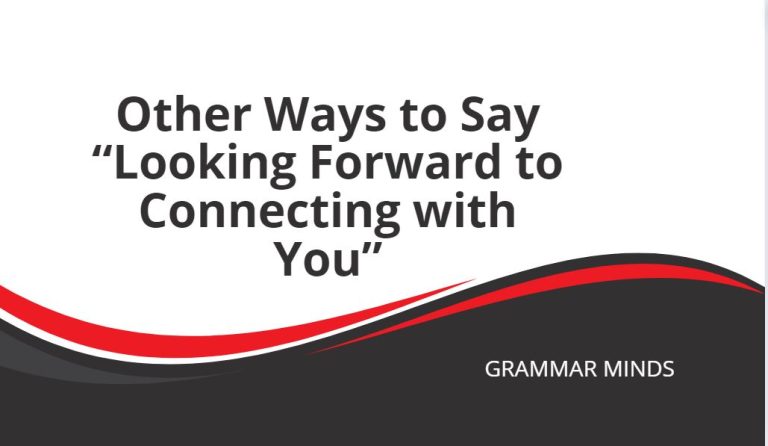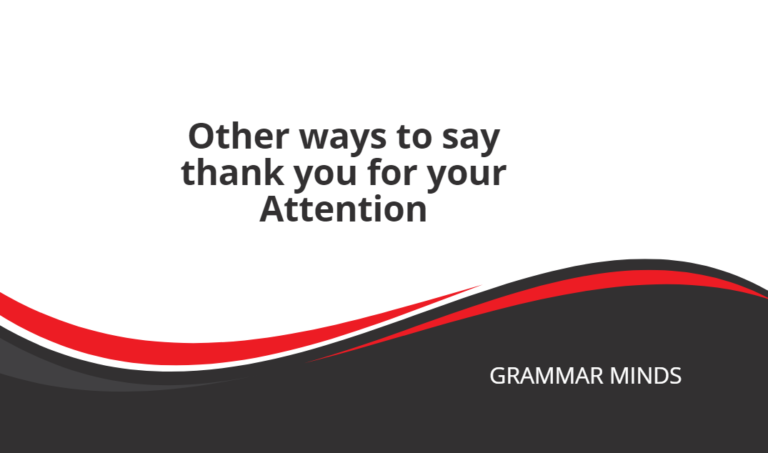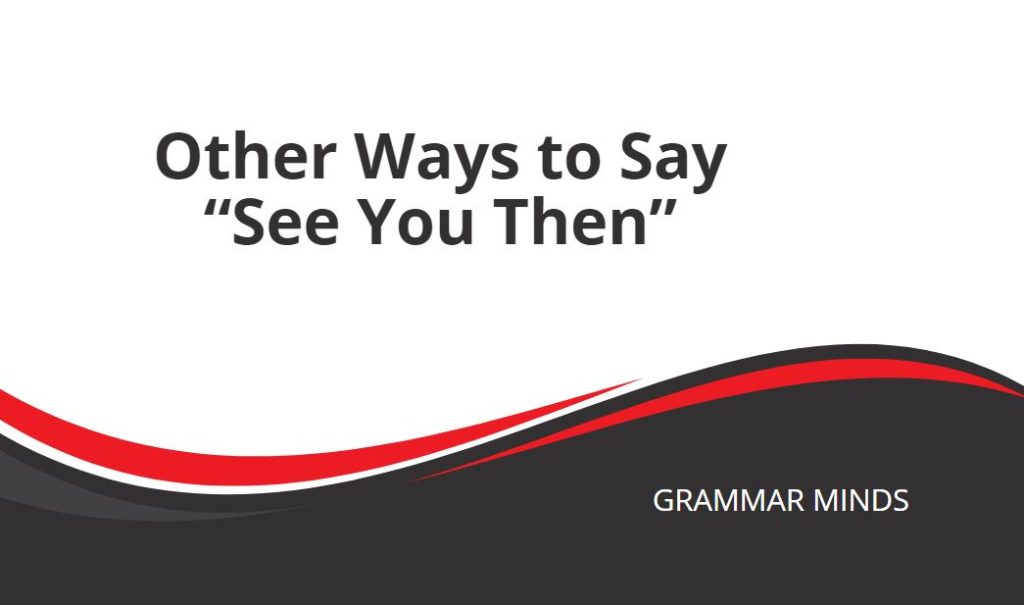
Are you planning to meet someone and want to confirm your meeting time in a more engaging way? “See you then” might be the phrase you’re looking for.
Although, are there better options available?
Don’t worry. This article will look into some of the best alternatives you can use to give you another way to say “see you then.”
Other Ways to Say “See You Then”
- Looking forward to our meeting
- Catch you at the appointed time
- See you at our scheduled time
- I’ll be there
- I’ll see you at that time
- Count on me being there
- See you at the agreed time
- Can’t wait to see you
- I’ll be seeing you then
- See you at the specified time
- I’ll meet you there
KEY POINTS
“See you then” is acceptable in both formal and informal English. You could try “looking forward to our meeting” if you want something more professional and respectful. “I’ll be there” is great for informal situations. You should keep reading to learn more about the most effective phrases to use! You never know when you might need an alternative to “see you then” in a message.
Feel free to skip to the final section if you’d like to learn whether the phrase is correct. After all, you might not even be allowed to use it in some situations!
Looking Forward to Our Meeting (Formal)
“Looking forward to our meeting” is a good example of how to say “see you then” professionally. It’s an excellent formal synonym that works well in many messages.
You can use this phrase to appear respectful and polite to an email recipient. It’s a good email closer, letting them know you’re excited but using professional terminology.
You should try it when emailing your boss or a client and confirming your scheduled meeting time.
We recommend using “looking forward to our meeting” over “see you then” in professional contexts. It works well in business emails and appears much more confident.
Here are some email examples to give you more information about it:
Dear Mr. Johnson
I have noted our meeting for Wednesday. Looking forward to our meeting, Samantha
Dear Dr. Williams,
Thank you for scheduling the discussion. Looking forward to our meeting,
Henry
I’ll Be There (Informal)
“I’ll be there” is great if you want a more informal synonym for “see you then.” It shows you’re committed to the meeting time and reassures the other person.
You should use this phrase when speaking to friends or family members when setting up casual meetups or plans. It shows you’re eager to join them at the agreed time.
You don’t want to use “I’ll be there” in professional contexts, though. Stick with “see you then” or “looking forward to our meeting” as an email closer formally.
However, “I’ll be there” is sufficient as an informal email closer.
Here are some informal examples to show you how it works:
I’ll be there at 6 PM sharp! Looking forward to catching up.
Dear Amy,
Sounds perfect. I’ll be there,
Mike
Is It Correct to Say “See You Then”?
“See you then” is grammatically correct and works well in formal and informal situations. Generally, you will find it as an email or message closer.
It’s very common to use “see you then” when confirming a meeting time. It’s similar to saying something like “talk to you later” or “catch you later,” but it specifically relates to having a set time to meet.
Here are some other variations you may use:
- See you at the designated time
- See you at the specified time
You can use these variations interchangeably. However, “see you then” is the most straightforward and commonly used phrase.
Feel free to bookmark this page if you ever have more questions! After all, you never know when you might need to confirm another meeting with someone.

